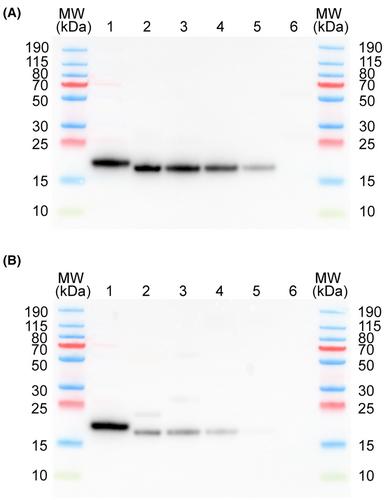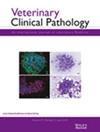Development and validation of an ELISA to measure regenerating island-derived protein 3E in canine blood
Abstract
Background
Regenerating island-derived proteins (REG) are upregulated in people with sepsis, pancreatitis, and gastrointestinal diseases. One member of the REG family, namely REG3E, was recently identified in pancreatic tissue and plasma of dogs, with high expression in pancreatitis and sepsis.
Objectives
We aimed to develop and validate an ELISA to measure REG3E concentrations in canine blood.
Methods
An indirect sandwich ELISA was developed using recombinant canine REG3E protein and polyclonal anti-canine REG3E antibodies raised in guinea pigs and rabbits. Antibody specificity was assessed using western blot and mass spectrometric analysis of protein purified from canine plasma. Assay validation included evaluation of dilutional linearity, parallelism, spiking recovery, repeatability and reproducibility, stability, interferences, and comparison of serum and heparinized plasma.
Results
Antibodies bound specifically to REG3E with no evidence of cross-reactivity with other proteins. The limit of detection of the ELISA was 15 ng/mL, and the lower limit of quantification was 30 ng/mL. The assay demonstrated good to excellent linearity, dilutional and mixing parallelism, and recovery, with mean observed-to-expected ratios of 104%, 107%, 102%, and 92%, respectively, and no evidence of a hook effect. Coefficients of variation were ≤8.5% for repeatability and ≤14.3% for reproducibility at three different levels. Measurements of REG3E in plasma were not significantly influenced by different storage conditions, freeze-thawing cycles, hemolysis, lipemia, or icterus. There was no significant difference between REG3E concentrations in heparinized plasma and serum samples.
Conclusions
The canine REG3E ELISA has acceptable precision, accuracy, linearity, and reproducibility for the measurement of REG3E in canine plasma and serum.


 求助内容:
求助内容: 应助结果提醒方式:
应助结果提醒方式:


